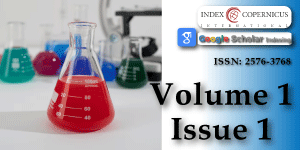Neutralizing scFv Antibodies against Infectious Bursal Disease Virus Isolated From a Nlpa-Based Bacterial Display Library
Main Article Content
Abstract
Infectious bursal disease (IBD) considered as one of the major viral diseases threatening the poultry industry worldwide. The causative agent of the IBD is Infectious bursal disease virus (IBDV) which replicates in developing B lymphocytes in the bursa of Fabricius leading to its destruction and bursal inflammation. In this study, we investigated a technology to produce therapeutic recombinant antibodies against IBDV in bacteria by constructing a bacterial displayed recombinant scFv library from immunized chickens, followed by screening the scFv library by fluorescence activated cell sorting (FACS) with FITC-labeled VP2. Twelve VP2-binding scFv clones with unique sequences were obtained, with overall amino acid homology of 81.53%. The complementarity determining region (CDR) 3 in the heavy chain displayed the lowest homology, while the amino acid sequences in framework regions and CDR2 of both chains and CDR1 of the heavy chain are relatively conserved. Twelve VP2-binding scFv clones were expressed in E.coli and purified through denaturation and denaturation of inclusion bodies. Our ELISA results showed that all scFvs exhibited binding ability and specificity to VP2 and various IBDV strains. In addition, two scFvs showed significant neutralizing activity to IBDV (B-87 strain) as these scFvs inhibited cytopathic effect of chicken embryo fibroblast (DF1) caused by IBDV. In conclusion, our study provides a lead candidate for further development of therapeutic antibodies for IBDV infection.
Article Details
Copyright (c) 2017 Li T, et al.

This work is licensed under a Creative Commons Attribution 4.0 International License.
Greenall SA, Tyack SG, Johnson MA, Sapats SI. Antibody fragments, expressed by a fowl adenovirus vector, are able to neutralize infectious bursal disease virus. Avian pathol. 2010; 39: 339-348. Ref.: https://goo.gl/AGydXt
Busnadiego I, Maestre AM, Rodriguez D, Rodriguez JF. The infectious bursal disease virus rna-binding vp3 polypeptide inhibits pkr-mediated apoptosis. PloS One. 2012; 7. Ref.: https://goo.gl/WN9yFn
Smith J, Sadeyen JR, Butter C, Kaiser P, Burt DW. Analysis of the early immune response to infection by infectious bursal disease virus in chickens differing in their resistance to the disease. J Virol. 2015; 89: 2469-2482. Ref.: https://goo.gl/W4N32a
Deb R, Dey S, Madhan Mohan C, Gaikwad S, Kamble N, et al. Development and evaluation of a salmonella typhimurium flagellin based chimeric DNA vaccine against infectious bursal disease of poultry. Res Vet Sci. 2015; 102: 7-14. Ref.: https://goo.gl/eDDjPl
Guo X, Wang L, Cui D, Ruan W, Liu F, et al. Differential expression of the toll-like receptor pathway and related genes of chicken bursa after experimental infection with infectious bursa disease virus. Arch Virol. 2012; 157: 2189-2199. Ref.: https://goo.gl/gy0MVL
Hornyak A, Lipinski KS, Bakonyi T, Forgach P, Horvath E, et al. Effective multiple oral administration of reverse genetics engineered infectious bursal disease virus in mice in the presence of neutralizing antibodies. J Gene Med. 2015; 17: 116-131. Ref.: https://goo.gl/5a3a02
Mahgoub HA, Bailey M, Kaiser P. An overview of infectious bursal disease. Arch Virol. 2012; 157: 2047-2057. Ref.: https://goo.gl/Cn1ddg
Su BS, Chiu HH, Lin CC, Shien JH, Yin HS, et al. Adjuvant activity of chicken interleukin-12 co-administered with infectious bursal disease virus recombinant vp2 antigen in chickens. Vet Immunol Immunopathol. 2011; 139: 167-175. Ref.: https://goo.gl/ZlLGqw
Xu Y, Li X, Jin L, Zhen Y, Lu Y, et al. Application of chicken egg yolk immunoglobulins in the control of terrestrial and aquatic animal diseases: A review. Biotechnol Adv. 2011; 29: 860-868. Ref.: https://goo.gl/zEITFB
Li K, Courtillon C, Guionie O, Allee C, Amelot M, et al. Genetic, antigenic and pathogenic characterization of four infectious bursal disease virus isolates from china suggests continued evolution of very virulent viruses. Infect Genet Evol. 2015; 30: 120-127. Ref.: https://goo.gl/J4KUoq
T Li, L Xu, G Ren, B Zhou,Ye X, et al. A neutralization scfv antibody against il-1β isolated from a nipa-based bacterial display library. Curr Pharm Biotechnol. 2013; 14: 571-581. Ref.: https://goo.gl/eDJJTj
Ferreira Junior A, Santiago FM, Silva MV, Ferreira FB, Macedo Junior AG, et al. Production, characterization and applications for toxoplasma gondii-specific polyclonal chicken egg yolk immunoglobulins. PloS One. 2012; 7. Ref.: https://goo.gl/OCvRCG
Taghavian O, Spiegel H, Hauck R, Hafez HM, Fischer R, et al. Protective oral vaccination against infectious bursal disease virus using the major viral antigenic protein vp2 produced in pichia pastoris. PloS One. 2013; 8. Ref.: https://goo.gl/59SpWh
Jakka P, Reddy YK, Kirubaharan JJ, Chandran ND. Evaluation of immune responses by live infectious bursal disease vaccines to avoid vaccination failures. Eur J Microbiol Immunol (Bp). 2014; 4: 123-127. Ref.: https://goo.gl/tkY50j
Jain P, Singh R, Saxena VK, Singh KB, Ahmed KA, et al. In vitro rapid clearance of infectious bursal disease virus in peripheral blood mononuclear cells of chicken lines divergent for antibody response might be related to the enhanced expression of proinflammatory cytokines. Res Vet Sci. 2013; 95: 957-964. Ref.: https://goo.gl/3shwP7
Dantas-Barbosa C, de Macedo Brigido M, Maranhao AQ. Antibody phage display libraries: Contributions to oncology. Int J Mol Sci. 2012; 13: 5420-5440. Ref.: https://goo.gl/RISxFI
Tabll A, Abbas AT, El-Kafrawy S, Wahid A. Monoclonal antibodies: Principles and applications of immmunodiagnosis and immunotherapy for hepatitis c virus. World J Hepatol. 2015; 7: 2369-2383. Ref.: https://goo.gl/94E615
Gonzalez D, Rodriguez JF, Abaitua F. Intracellular interference of infectious bursal disease virus. J Virol. 2005; 79: 14437-14441.Ref.: https://goo.gl/PMzQix
Parker D, de Wit S, Houghton H, Prandini F. Assessment of impact of a novel infectious bursal disease (ibd) vaccination programme in breeders on ibd humoral antibody levels through the laying period. Vet Rec Open. 2014; 1. Ref.: https://goo.gl/BEB8bQ
Thomson L, Tenopoulou M, Lightfoot R, Tsika E, Parastatidis I, et al. Immunoglobulins against tyrosine-nitrated epitopes in coronary artery disease. Circulation. 2012; 126: 2392-2401. Ref.: https://goo.gl/pJPE72
Brady LJ. Antibody-mediated immunomodulation: A strategy to improve host responses against microbial antigens. Infect Immun. 2005; 73: 671-678. Ref.: https://goo.gl/idnj1K

